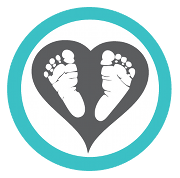So I might be jumping the gun here (or maybe not), but I went out on Friday afternoon and bought a blood glucose monitor. When I went to C.VS to purchase this monitor, I had no idea that there was more involved than just the monitor. I saw the O.netouch Mini on sale for $9.99 and I was sold. I then realized that you also needed lancets for $12.79 (ouch), control solution for $10.99, and test strips for a whopping $29.49. Oh and you only get 25 test strips for that amount of money. The total at C.VS was $64.48 after my $6.50 in "E.xtra B.ucks". They keep the test strips behind the counter because they are so expensive, small and thus and easy to steal (I feel for the poor diabetic with no insurance coverage that tries to go in and steal test strips only to find that they are locked behind the pharmacy counter).
The pharmacist asked if I was sure I wanted to buy the test strips without a prescription. I told him that I wasn't diagnosed officially yet and just wanted to get a handle on things in advance. He started making some jokes and then could tell that I was not really in the mood so he stopped. Nothing really funny about diabetes, my friend. Thanks, though.
I took my diabetic goodie bag home and dumped the goods on the table. I opened the instructions and found them to be the size of a AAA map with tiny writing. I was way too overwhelmed so I asked my husband if he would learn how to use it and then show me in the AM. He agreed with no complaints. Just a hunch, but I think he might feel bad for me. He is much better with directions to complicated devices than I am. How do old people figure out how to use these things (and see the instructions)?!
The schedule that I found for testing on most GD websites has been, first thing in the AM and then 1 or 2 hours after each meal. I decided to adopt this pretty basic plan. Based off of ADA guidelines the following is true: Fasting blood glucose should be 95 mg/dl or less and one hour after a meal, glucose levels should be 140 mg/dl or less. Two hours after a meal, blood glucose levels should be 120 mg/dl or less.
On Saturday morning I decided to start my experiment, already several days into my new diet. I decided to test fasting and 2 hours after each meal since I read on one of the forums that this is what most MFM doctors suggest. The worst part if getting my fingers to bleed enough, especially in the AM. I sometimes have to prick my finger 4 times to get enough blood. I have already developed a hematoma under one of my fingers. Here are my numbers so far:
The only numbers that are of any concern to me are the fasting numbers, namely my Sunday fast number. I would say that this definitely points to GD. 95 is the fasting cutoff for GD. Seems like the longer I go without food, the higher my blood sugar. I don't understand it all yet, but it definitely concerns me. Normally, I only fast for about 8 hours, but I wanted to sleep in on Sunday, since I know I am running out of time to do that. :(
So now I have my meals documented, my blood sugar readings documented, and will take the 3 hour test on Tuesday. I am sure this will help the nutritionist out. That said, I am fully prepared to fail the 3 hour test. Will I still be upset, yes, but at least I can see it coming and won't be blindsided. This is so much fun
share this on » |
{Facebook} |
{Twitter} |
{Pinterest} |








Wow! You go, girl. I totally commend you for being so prepared. But still hoping you don't fail the test as you're expecting. Stranger things have been known to happen!
ReplyDeleteThanks! I am such a scientist. Thank you infertility! I am still praying that I don't have it. Even if I don't, I think I'll still eat close to this same diet just in case.
DeleteYour glucose in your system after sleep comes from your kidney, it stores it up during the day and slow releases over night- or when you don't eat. Sounds like fab results, you never know you just might pass! Here's hoping :)
ReplyDeleteLove how you're taking charge- that's awesome and hey, being vigilant about GD can't be a bad thing whether you have it or not, doing all of tis will either help manage it or prevent it.
ReplyDelete